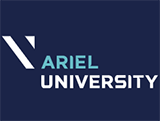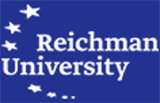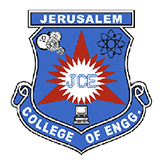Introduction to Jerusalem College of Engineering
Overview
Jerusalem College of Engineering (JCE) is a higher engineering education institution located in Jerusalem, Israel, founded in 1971. JCE is known for its high-quality engineering education and research, aiming to train engineers and technical experts with solid theoretical foundation and practical ability. The college is located in the center of Jerusalem, which provides students with abundant internship and employment opportunities, while also enjoying the cultural atmosphere of the historic city of Jerusalem.
Historical Background
The Jerusalem College of Engineering was established to meet Israel's demand for high-level engineering and technical talents. Since its establishment, JCE has continued to grow and become an important force in Israel's engineering education field. The college maintains a close cooperative relationship with local high-tech enterprises and research institutions, providing students with abundant practical and research opportunities. JCE is committed to promoting Israel's scientific and technological progress and social development through high-quality education and research.
School Features
Jerusalem College of Engineering is known for its unique school features, which mainly include:
Interdisciplinary education: The college encourages interdisciplinary research and learning, and provides courses that cross multiple disciplines to help students develop comprehensively.
Practice-oriented: The college emphasizes the combination of theory and practice, and helps students master practical skills through laboratory work, project design and internships.
Small class teaching: The college adopts a small class teaching model to ensure that every student can get full attention and support.
International vision: The college actively establishes cooperative relations with many well-known universities and research institutions in the world to provide students with an international learning and research platform.
Course settings
Jerusalem School of Engineering offers a wide range of undergraduate and graduate courses covering multiple engineering and technology fields, including:
Civil Engineering: Including structural engineering, transportation engineering, environmental engineering and other directions.
Electrical Engineering: Including power systems, control engineering, signal processing and other directions.
Mechanical Engineering: Including mechanical design, manufacturing technology, materials science and other directions.
Computer Engineering: Including computer networks, software development, embedded systems and other directions.
Industrial Engineering: Including production management, logistics and supply chain management, quality control and other directions.
Biomedical Engineering: Including biomaterials, medical devices, bioinformatics and other directions.
Teaching Mode
The Jerusalem School of Engineering adopts a flexible and diverse teaching mode, including:
Theoretical courses: provide systematic theoretical knowledge to help students build a solid academic foundation.
Experimental courses: through laboratory work, let students do hands-on operations and master practical skills.
Project design: encourage students to participate in actual engineering projects to improve their problem-solving ability.
Internship opportunities: cooperate with local enterprises and institutions to provide students with internship opportunities and enhance their professional competitiveness.
Seminars and lectures: regularly invite industry experts and scholars to give lectures at the school to provide students with the latest industry trends and academic frontier knowledge.
Teaching quality
The Jerusalem School of Engineering has a team of highly qualified teachers, many of whom have rich teaching and research experience and enjoy a high reputation in their respective fields. The school also regularly invites industry experts and scholars to give lectures at the school to provide students with the latest industry trends and academic frontier knowledge.
International cooperation
The Jerusalem School of Engineering has established cooperative relations with many internationally renowned universities and research institutions to carry out academic exchanges and joint research projects. These collaborations not only enhance the international influence of the school, but also provide students with more learning and development opportunities. For example, the college has signed student exchange agreements with many universities in the United States, Europe and Asia, providing students with a rich international learning experience.
Campus Life
The main campus of the Jerusalem School of Engineering is located in the center of Jerusalem, with convenient transportation and complete surrounding facilities. The campus environment is beautiful and the facilities are modern, including:
Library: rich collection of books, providing a variety of academic resources and learning space.
Laboratory: equipped with advanced scientific research equipment to support the research work of students and teachers.
Multimedia classroom: provides modern teaching facilities and technical support.
Student Service Center: provides students with academic counseling, career planning, psychological counseling and other services.
Student Clubs: provides a wealth of extracurricular activities and club organizations to promote the all-round development of students.
Research Results
The Jerusalem School of Engineering has carried out a lot of cutting-edge research in many fields and published many high-level academic papers. For example, the college has achieved remarkable research results in the fields of civil engineering, electrical engineering and computer engineering. The college's research projects have been funded by government departments such as the Israel Science Foundation and the Ministry of Science, Technology and Space many times, demonstrating its strong strength in the field of scientific research.
Tuition Fees
The tuition fees of the Jerusalem School of Engineering vary depending on the course and program. Generally speaking, the tuition fees for undergraduate programs are between 15,000 and 20,000 shekels, while the tuition fees for graduate programs are between 18,000 and 25,000 shekels. The college also offers a variety of scholarships and grants to help students with financial difficulties complete their studies.
Notable Alumni
The Jerusalem School of Engineering has trained many outstanding alumni who have made remarkable achievements in their respective fields. These alumni have not only made their mark in Israel, but also demonstrated the educational achievements of the college on the international stage. For example, some alumni serve as executives in high-tech companies, while others have made important breakthroughs in academia and research institutions.
Conclusion
The Jerusalem School of Engineering has become a pearl in the field of engineering education in Israel with its excellent educational quality and innovative school-running model. The college not only provides students with rich academic resources and practical opportunities, but also lays a solid foundation for their career development and international vision. In the future, the Jerusalem School of Engineering will continue to uphold its open and inclusive educational philosophy, promote academic innovation and social progress, and make greater contributions to the development of human society.
-

Ariel University
-

Reichman University
-

Open University of Israel
-

Weizmann Institute of Science
-

Hebrew University of Jerusalem
-

Ben-Gurion University of the Negev
-

Bar-Ilan University
-

Jerusalem Academy of Music and Dance
-

Hadassah Academic College, Jerusalem
-

Jerusalem College of Engineering
-

Mesoamerican University
-

Istmo University
-

Mariano Galvez University of Guatemala
-

Regional University of Guatemala
-

Galileo University
-

Francisco Marroquín University
-

Rafael Landívar University
-

University of the Valley of Guatemala
-

University of San Carlos of Guatemala
-

Technological Institute of Tlaxcala Plateau
-

Golfo University
-

Technological University of South Sonora
-

Technological University of Huejotzingo
-

Tizimín Institute of Technology
-

Chilpancingo Institute of Technology
